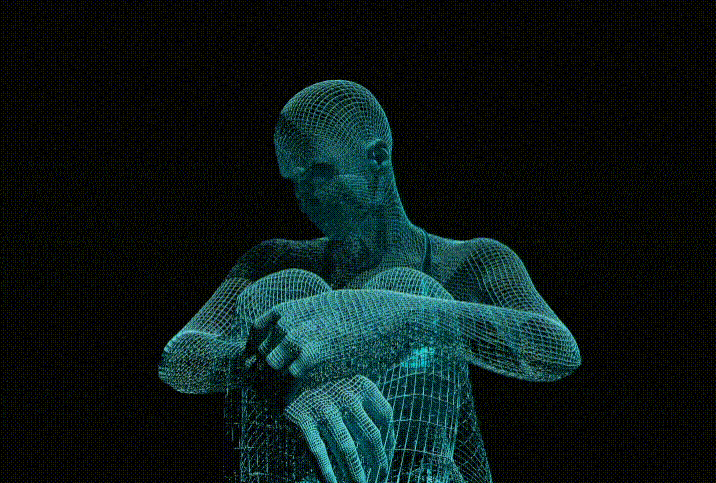How I Learned to Live With My Alters

If you've ever seen a cop show, a horror movie or "Dr. Phil," then you've probably seen or heard of dissociative identity disorder (DID)—sometimes referred to as multiple personality disorder.
So, what is it really? Are there people running around like Jekyll and Hyde, locking people in basements and manipulating those around them? Nope, not the case. Most people with DID are living regular lives like everyone else.
DID is a survival tool for people who suffered prolonged abuse, typically stemming from early childhood. While it is more common among survivors of sexual abuse, not all people with DID experienced sexual trauma. I don't know this by being a doctor or a psychologist, but by being a member of the DID community. I was given a formal diagnosis in 2019, after questioning my misdiagnosis of schizoaffective disorder.
Cohabitating with my alters
My system contains 20 members, all working around the clock to keep me safe, healthy and alive. The system is co-conscious, meaning we share information freely with one another and I don't often lose time when another alter is out and about. This is not the case with every person with DID. The most common of my alters who interact with the world are Micha, a 16-year-old girl; Kata, a 30-year-old woman; Karter, a 19-year-old man; and Echo, an ageless alter I consider a shadow of myself. Each of them has a job to do in my daily life.
Our day is full of self-check-ins, arguments and votes. It can get chaotic, but at the end of the day, we live a fairly average life.
Micha is a caregiver, flirt and the powerhouse behind all of my relationships. She's the one who reaches out when someone makes a sad post on Facebook to see if they're okay. She calls friends we haven't heard from in a while and picks flowers for our partners to make them smile. She is the kind, friendly and supportive face I put forward during difficult times.
Kata is a protector. She stops us from doing dumb things that could get us hurt. She's our conscience—the voice in the back of my head saying, "Just because you can doesn't mean you should." She is also the one to shut down catcallers and is the mom friend of everyone she meets.
Karter is also a protector, but more physically so than Kata. If we are ever in physical danger, he's there to throw a haymaker and get us out of there. When we're safe, he's quick with a joke or a story.
And, finally, there's Echo, whose job is to stand in for me when I'm unable to face the world. Echo hides the rest of the system's existence from the world and presents as normal—almost too normal—until he's under closer inspection, when the facade falls apart.
Living with DID
So what is it like living with DID? Isn't it hard to be so many people? While it is difficult and we do struggle, none of us ever remembers a time when there wasn't someone else here. This is just our normal and we've adapted to it.
For instance, we function mainly on committees. Small choices can be made on an individual level, but large choices require votes: Micha can decide what to eat for breakfast on her own but has to ask for a vote if she wants to get her nose pierced. Our day is full of self-check-ins, arguments and votes. It can get chaotic, but at the end of the day, we live a fairly average life.
All in all, people with DID are generally normal, functioning people living with trauma in the best way we know how.
We are full-time students studying addiction recovery counseling. We get up every morning and have breakfast, get dressed and then either attend classes or go to our clinical internship. When we're not working or in class, we spend time with our partners, play with our dog, hang out with friends or engage in one of our many hobbies. Besides flashbacks and panic attacks, it's a fairly normal life.
And those flashbacks and panic attacks are more or less part of the deal. Along with DID, I also have CPTSD—complex post-traumatic stress disorder—which is fairly common amongst people with DID. I can't count the number of hours I've spent panicking and crying over things that used to trigger my abuse. It's ultimately the trauma, and not the alters, that disrupts my life.
We all have our own experiences with life and the world around us, and every system will function differently, but all in all, people with DID are generally normal, functioning people living with trauma in the best way we know how.
For us, that means taking a vote on nose rings and doing our best not to eat candy for breakfast.


















